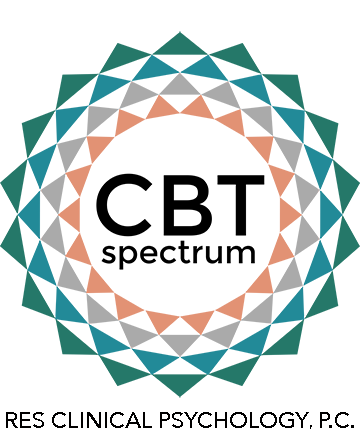OBSESSIVE COMPULSIVE DISORDER (OCD)
Even though OCD can cause extreme distress and disability in your life I believe it is a very treatable condition. As an expert in the treatment of OCD for individuals of all ages, especially when it occurs with Anxiety or Autism, you can expect that we will:
- Help you understand your OCD, including how current coping strategies may be making it worse, and helping you become an expert in OCD treatment for yourself
- Have an in-depth understanding of OCD and CBT as specifically applied to OCD
- Incorporate Exposure & Response Prevention as a core part of treatment, both in and out of the office
- Do home visits and other out-of-the-office sessions when needed
The most effective treatment for OCD is Cognitive Behavior Therapy (CBT) including Exposure and Response Prevention (EX/RP). We will help guide you in exposure therapy so you can face your worries and resist doing compulsions and behaviors that you feel that you "have to" do.
We will collaborate together to do exposures at a pace that is tailored to you in order to most successfully cope with OCD. By gradually confronting your obsessional thoughts without doing rituals or avoidance you will retrain your body and brain to tolerate OCD and have a more meaningful, successful life, no longer feeling imprisoned by OCD.
We will also teach you other Cognitive Behavior Therapy (CBT) techniques to help cope with OCD, such as becoming a "thought detective" to recognize your own unhelpful ways of thinking and modifying them to more helpful ones (cognitive restructuring), understanding that just because you have a thought or feeling does not necessarily make them true, providing ways to see thoughts as "just thoughts" (thought defusion), and doing exercises that can help you more purposely be in the present moment rather than get stuck in the past or wrapped up in the future (mindfulness).
We have extensive experience working with a wide range of OCD such as:
- Contamination OCD: common obsessions are of fear of being dirty, germs, chemicals & contaminants & compulsions are excessive washing, cleaning, reassurance seeking, & avoiding
- "Just Right" OCD: common obsessions are not being able to tolerate specific things & feeling like you have to do something until you feel right. Common compulsions are repeating routine behaviors, checking and repeating writing & reading
- Losing Control & Fear of Harm OCD: common obsessions are worries about doing something violent or harmful to self or others, fear of blurting out obscenities or insults or of stealing things and common compulsions are avoidance of triggering media, mentally reviewing violent thoughts and behavior, reassurance seeking
- Perfectionism OCD: Common obsessions are concern for evenness and exactness, need to know or remember something, excessive difficulty making a decision and common compulsions are avoidance of making decisions, doing things over and over, and reassurance seeking
- Relationship OCD: Common obsessions are fear of being in the wrong or imperfect relationship, fear of not being in love or choosing the wrong partner and common compulsions are checking for "love feelings," avoiding triggering situations and excessive mental review of relationship
- Religious & Moral Scrupulosity OCD: common obsessions are fear of religious blasphemy, being morally imperfect or a "bad" person and common compulsions are compulsive prayer, avoidance of triggering situations, excessive attention to honesty & morality and excessive mental review of perceived mistakes
- Sexually Related OCD: Common obsessions are fear of changing sexual orientation, intrusive thoughts related to sexual orientation and intrusive sexual thoughts about taboo attractions and forbidden relationships and common compulsions are avoidance of triggering situations, checking for arousal, excessive mental review of behavior and sexual themes
- And more, such as counting things, repeating things a certain number of times, doing behavior to "cancel" or "undo" something, arranging or moving things until it "feels right"
DR. SACHS IS SUCCESSFUL IN HELPING YOU OVERCOME:
- Obsessive Compulsive Disorder (OCD)
- Hoarding
- Body Dysmorphic Disorder (BDD)
- Trichotillomania (Hair Pulling)
- Excoriation (Skin Picking)
- PANS/PANDAS (Pediatric Autoimmune Neuropsychiatric Disorders Associated with Steptococcal Infections)
WHAT IS OCD?
At some point everyone has disturbing thoughts and repetitive behaviors. We might wonder, “what if I blurt out something inappropriate?” mid-presentation, or triple-check that the oven is off.
However, individuals with Obsessive Compulsive Disorders (OCD) experience these thoughts and behaviors more frequently and with considerable distress and impairment.
OCD can be thought of as a disorder of the brain and behavior causing severe anxiety or discomfort in those affected.
- Obsessions are intrusive and unwanted thoughts, images or urges. They can create uncomfortable feelings like fear, disgust, doubt or a “not-right” feeling that can be difficult to control.
- People with OCD may feel the need to repeatedly perform a behavior or routine (physically or in the mind) called a compulsion. While compulsions may temporarily alleviate some distress, they end up “bullying” the individual, causing extreme distress and life interference.
FOr MORE INFORMATION & RESOURCES ON OCD & Related Disorders:
To learn more about best therapy and medication treatment options for OCD, consult ADAA's Clinical Practice Review for OCD that Dr. Sachs consulted on
